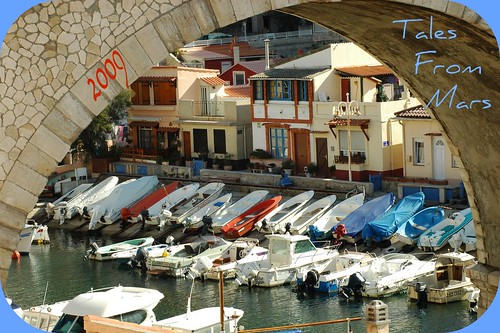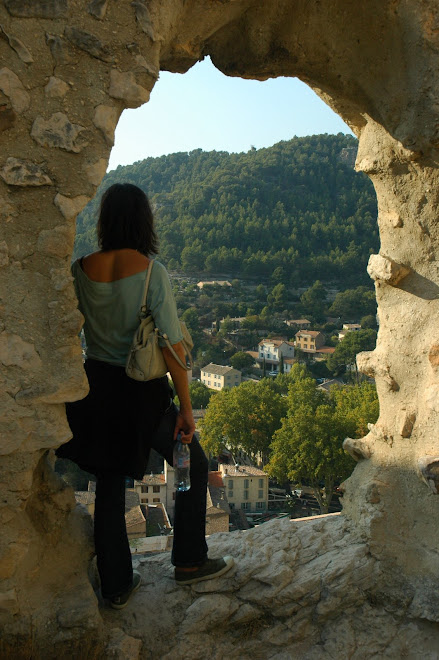

What I enjoyed more this past weekend than tasting the wines of the southern Rhone Valley region was standing on the highest point in the village of Chateauneuf-du-Pape, at the ruins of the old chateau, surveying the countryside that unfurled before me like a perfectly woven tapestry. It was magical. When we reached the hilltop it was windier, and slightly colder, but the skies were blue and in the distance long, thick clouds rolled in. The darkened tip of Mt. Ventoux was visible and before it, nestled in the crooks of small valleys painted in rusty reds, oranges, and deep greens, were clusters of homes with burning fireplaces. The air was crisp and smelled like baking bread, wood, and clean linen. Gunshots fired. Church bells tolled, first in Chateauneuf-du-Pape and then in the neighbouring village whose church spire I could just make out. Gunshots fired again, this time followed by a chorus of hounds; it was unclear from which thicket of forest the sounds echoed. I walked around the grounds while Marc took pictures. We were alone. And then, in a matter of seconds, the sky darkened and I found myself enveloped in a cloud; nothing in the valley was visible, not even what lay twenty feet ahead. The cloud had muffled the voices of Nature. The absolute silence that ensued was spooky, yet utterly beautiful. What sun remained shone through the chateau windows so that each appeared like a portal, a representation of one moment in time, or several condensed moments, that had ripped open after decades of a comatose-like existence. I stood still. Just as quickly as it appeared the cloud disappeared. Everything became clearer, and louder, and more brilliant than before, the cloud having deposited another layer of dew on the tiled rooftops and pointed treetops. I wanted to stay up there longer to revel in the purity of solitude, of time lost and gained, of past lives...but there was wine to taste and, just as we began the hike down, a car pulled up. My moment was over, as fickle and ephemeral as the cloud itself.







